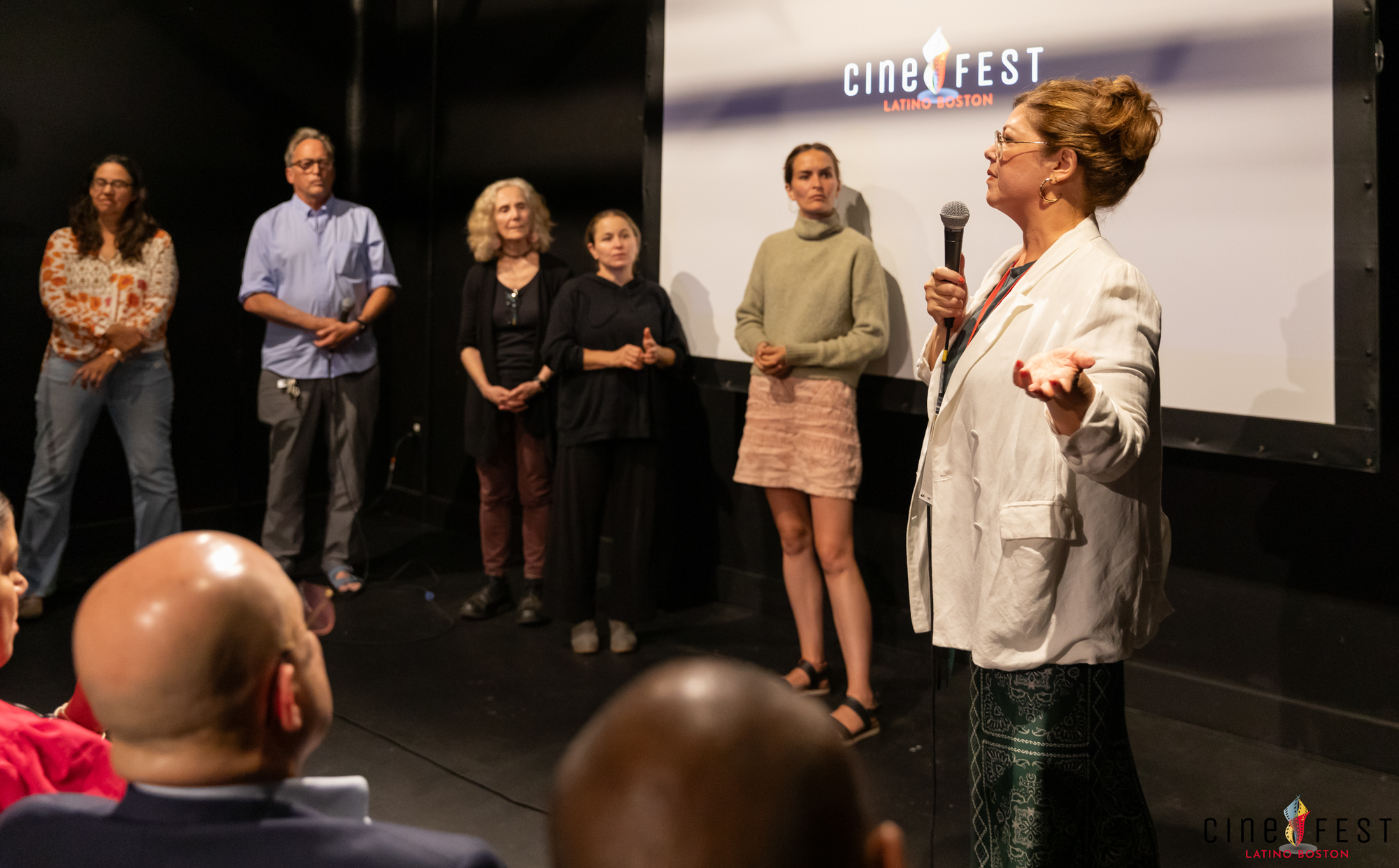CineFest Latino Boston serves as a vital space for showcasing underrepresented Latin American voices in film. At the festival’s heart is Sabrina Avilés, the driving force behind its creation.
The festival took place from Sept. 25-29, with films shown at Emerson Paramount Theatre, Coolidge Corner Theatre and the Museum of Fine Arts. CineFest brought together filmmakers, producers and movie enthusiasts from across Boston and beyond, spotlighting narratives that reflect the unique experiences of the Latin American community.
Avilés founded CineFest Latino in 2022, after her role as Executive Director of the Boston Latino International Film Festival for six years.

“Our mission really is to amplify Latino voices,” she said. “There’s so many assumptions made in the media of people of color, including Latinos … My mission is to use film to debunk those stereotypes.”
For Avilés, the festival is not just about film — it’s about community. CineFest offers a chance for filmmakers and attendees to connect through discussions, workshops and panels.
“I want it to be a festival where, as we grow the festival, many of the filmmakers can convene and get to know each other,” she said. “Not only are we highlighting the richness of diversity of our culture … but we’re also highlighting the richness of diversity of the language of film.”
One of the contributors at the festival was Mabel Valdiviezo, director of “Prodigal Daughter,” which was screened during the event.
“It’s about my return to Peru, my return to my family after 16 years of not having been in the country, but also having not been emotionally connected to my family,” Valdiviezo said.
For Valdiviezo, CineFest provided a platform for her voice and the voices of others in the Latino community.
“Beyond festivals, our work as storytellers is very hard to get out there … in the way that other mainstream cultures show their films,” she said.
Another director, Juan Mejia Botero, showcased his film “Igualada” at the festival. The film documented the presidential campaign of Francia Márquez, Colombia’s vice president.
“She said, ‘They don’t make movies about women like me or communities like mine,’” said Botero, recounting in a post-screening discussion the moment when Márquez asked him to document her journey.
During the panel, Botero and the moderator discussed how Márquez has faced “resistance and racist rhetoric,” despite being the vice president of the country.
The festival also brought together a diverse audience from beyond Latin America. Hakim Zziwa, a Ugandan filmmaker, said he attended the festival to discover new filmmakers and appreciated the authenticity of the Latin American filmmakers.
“Sometimes Hollywood takes over and we don’t get to know that there are other amazing filmmakers until we show up at such festivals,” Zziwa said.
He noted the parallels between Latin American and African cultures, especially regarding themes of migration and identity. For him, watching the films at CineFest was a reminder of how stories transcend borders and build bridges between cultures, he said.
The event encapsulates more than just film screenings — it highlights voices that resonate beyond borders. Whether it’s Latinx filmmakers sharing their stories, or filmmakers from outside Latin America discovering new connections, the festival is a platform for filmmakers to share their unique perspectives, Valdiviezo said.
“There needs to be the recognition that our culture is as important as the others, and we have all the reasons and rights to really show our stories,” Valdiviezo said. “By our community, by us.”





















































































































